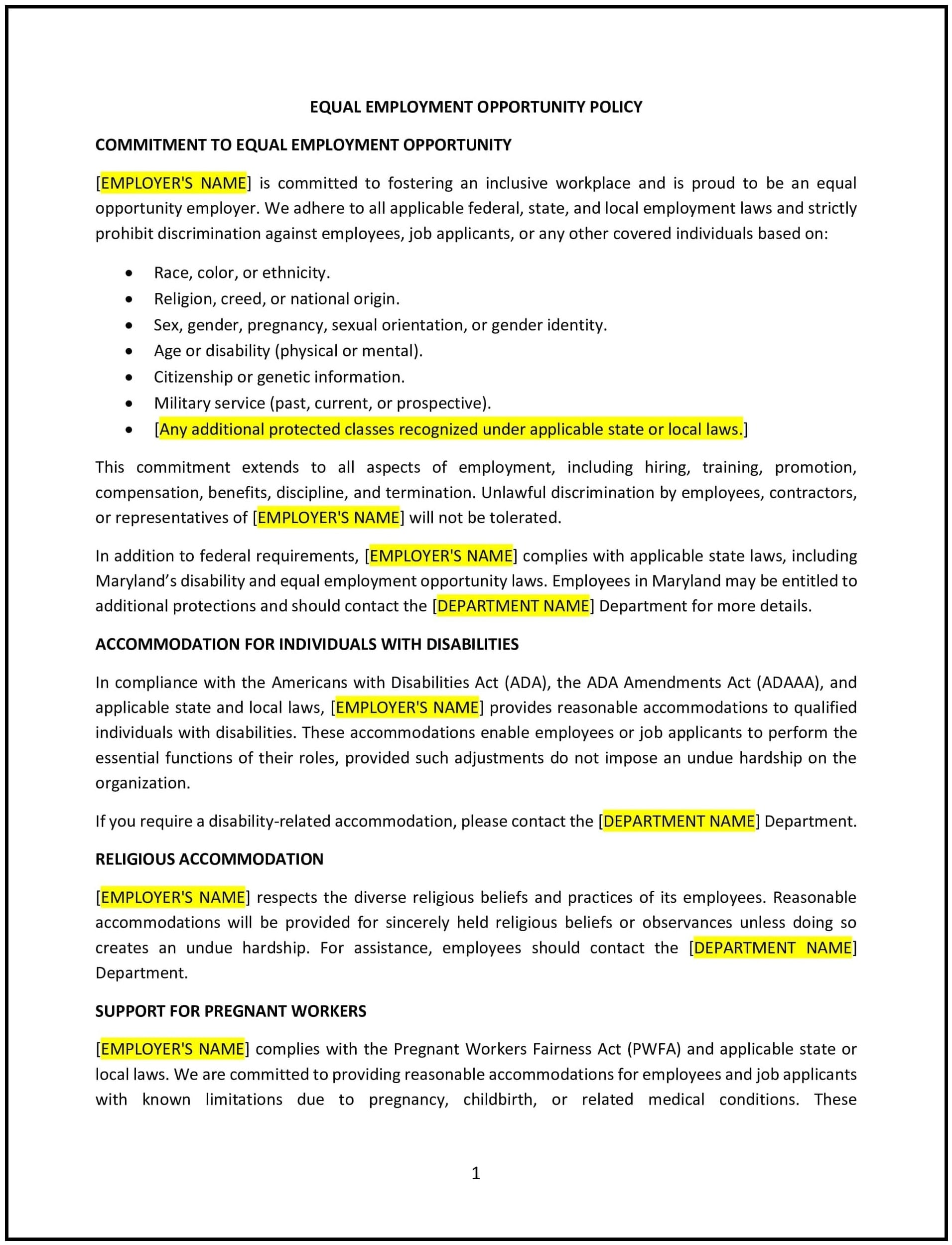Equal employment opportunity policy (Maryland): Free template
Got contracts to review? While you're here for policies, let Cobrief make contract review effortless—start your free review now.

Customize this template for free
Equal employment opportunity policy (Maryland)
This equal employment opportunity (EEO) policy is designed to help Maryland businesses create a workplace free from discrimination and promote fairness in all employment practices. It outlines the business’s commitment to providing equal opportunities regardless of race, gender, religion, disability, or other protected characteristics.
By adopting this policy, Maryland businesses can foster an inclusive work environment, comply with state and federal laws, and demonstrate a commitment to diversity and fairness.
How to use this equal employment opportunity policy (Maryland)
- Define equal opportunity: Clearly state the business’s commitment to fair treatment in hiring, promotions, compensation, and other employment practices.
- List protected characteristics: Include categories protected under Maryland law, such as race, color, religion, gender, sexual orientation, age, disability, marital status, and genetic information.
- Outline prohibited behaviors: Specify actions that violate the policy, such as discrimination, harassment, or retaliation.
- Detail reporting procedures: Provide clear instructions for reporting violations, including contacts in HR or designated personnel.
- Include anti-retaliation measures: Emphasize that employees reporting violations or participating in investigations are protected from retaliation.
- Address training requirements: Implement regular training for managers and employees on EEO principles and preventing workplace discrimination.
- Reflect Maryland-specific laws: Incorporate state requirements, such as the Maryland Fair Employment Practices Act.
Benefits of using this equal employment opportunity policy (Maryland)
Implementing this policy provides Maryland businesses with several advantages:
- Fosters inclusivity: Promotes a diverse workplace where employees feel valued and respected.
- Reduces legal risks: Aligns employment practices with Maryland and federal EEO laws.
- Enhances reputation: Demonstrates a commitment to ethical and equitable treatment of employees.
- Encourages accountability: Establishes clear guidelines for addressing and preventing discrimination.
- Improves recruitment and retention: Attracts and retains top talent by fostering a supportive work environment.
Tips for using this equal employment opportunity policy (Maryland)
- Communicate the policy: Share the policy during onboarding and regularly remind employees of its importance.
- Train employees: Provide mandatory training on recognizing and preventing discrimination in the workplace.
- Monitor compliance: Conduct periodic reviews to ensure EEO practices are being followed.
- Encourage reporting: Create a safe environment for employees to report violations without fear of retaliation.
- Stay updated: Reflect changes in Maryland employment laws or federal EEO regulations in the policy.